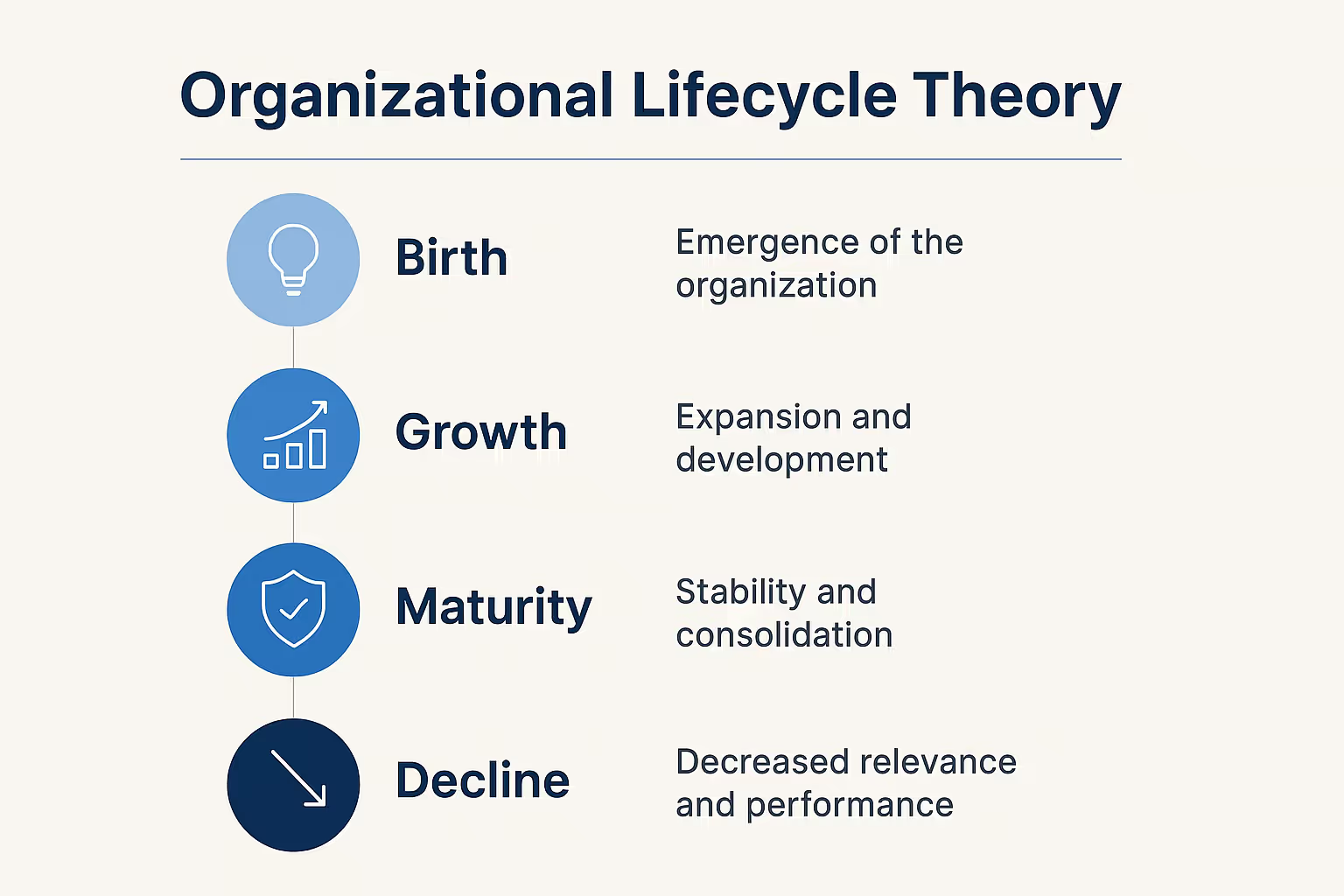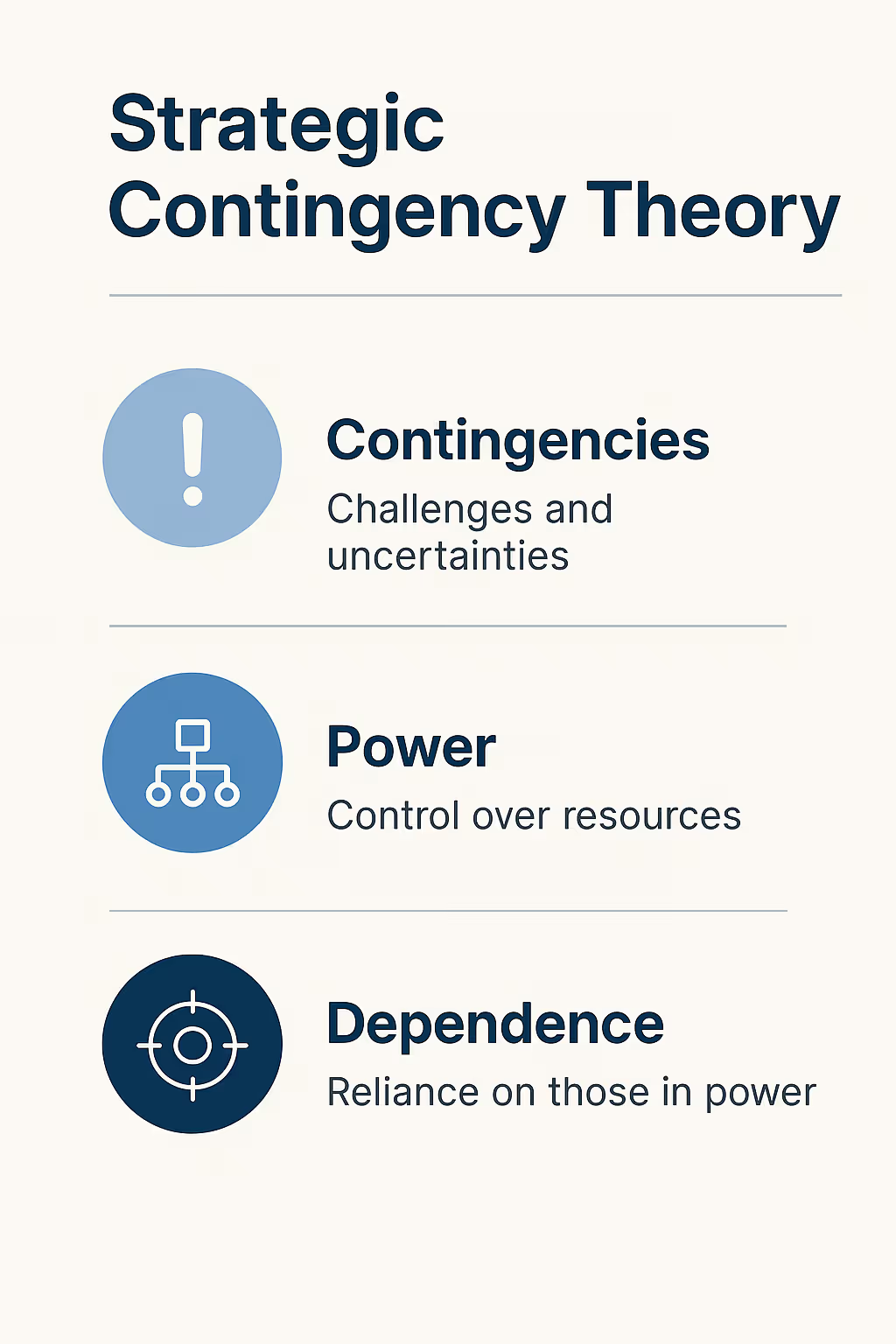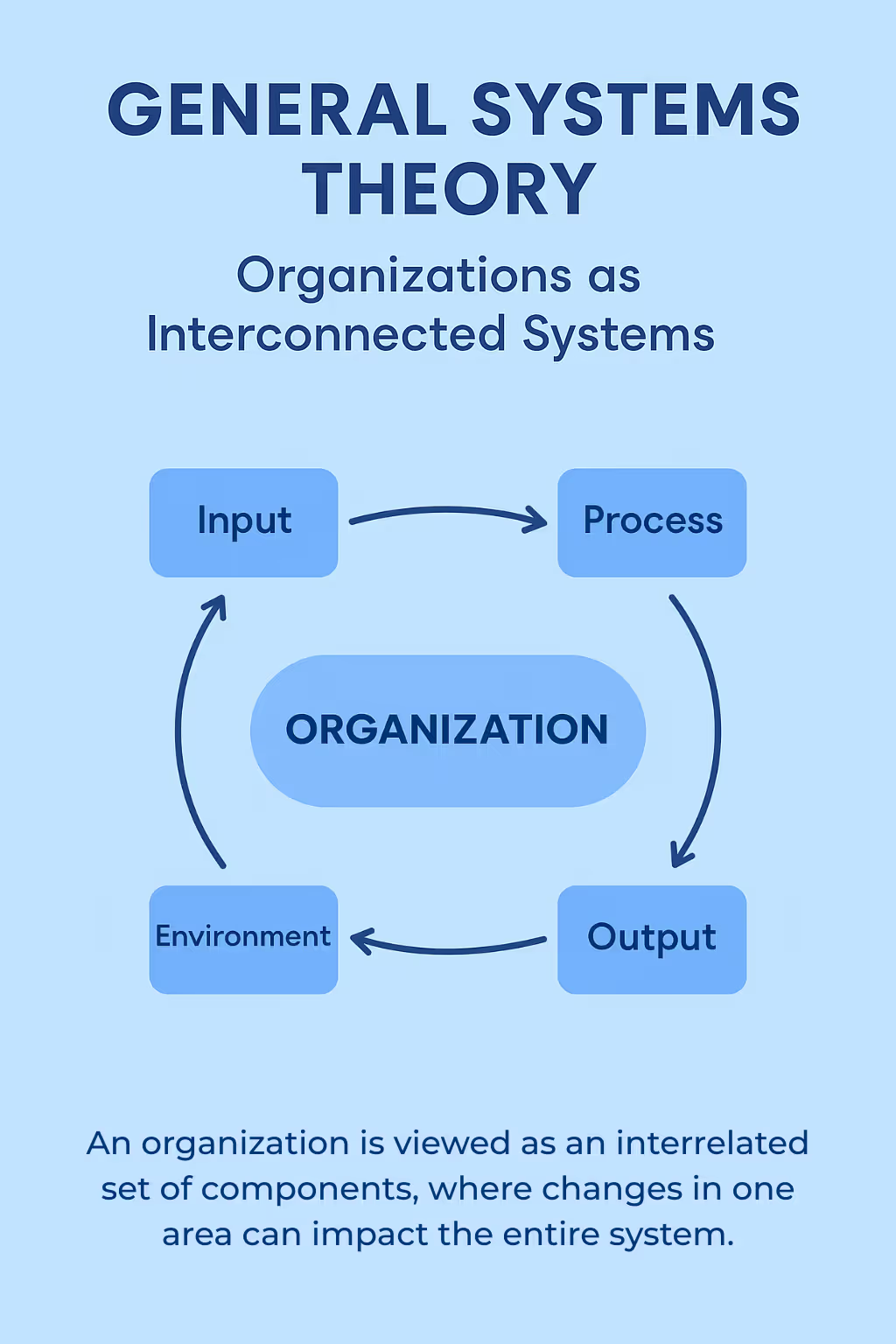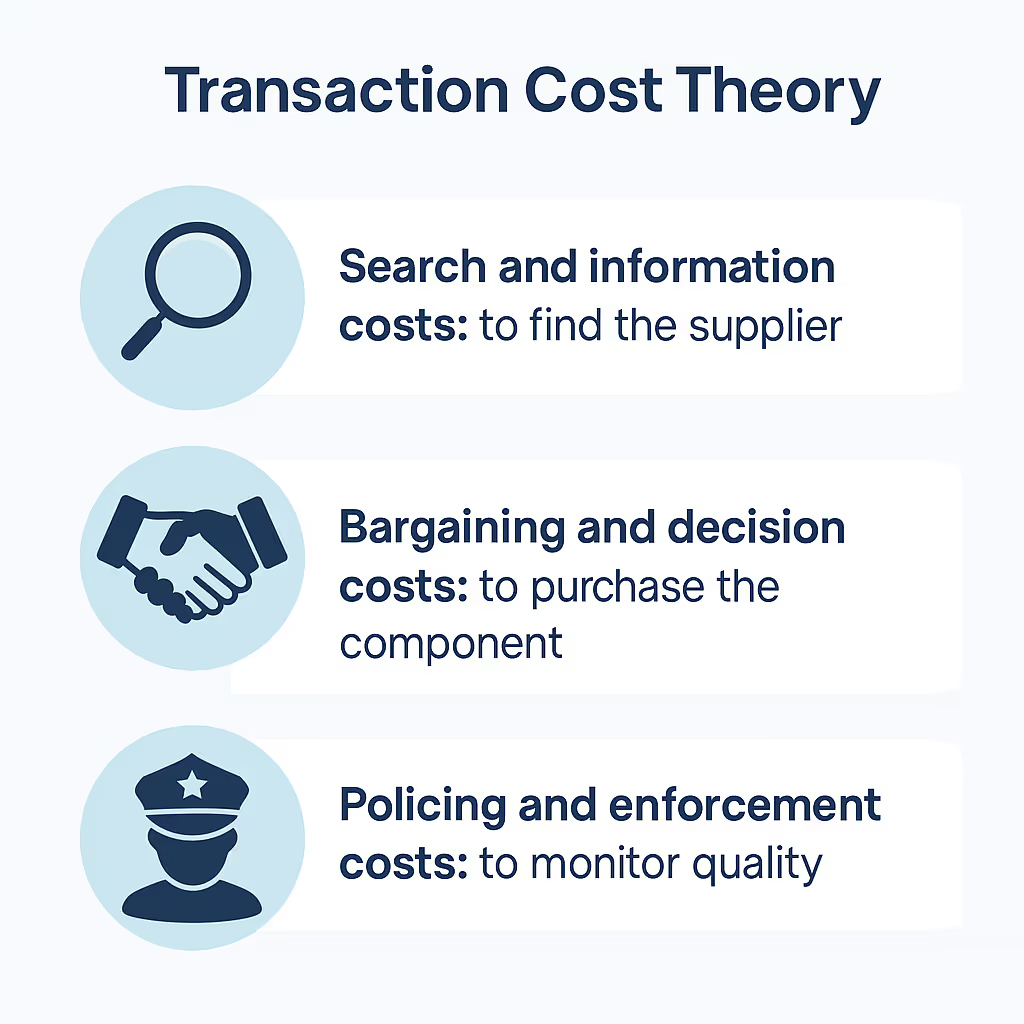What are HR Theories?
Human Resource theories is a general term for the strategies, tactics and objectives used by business owners and managers to administer policies and procedures related to employees.
Human resource theories explain how management practises and structures can influence employee behaviour in a favourable or bad way. Small business owners can optimise staff productivity and creativity while reducing employee turnover by having a basic understanding of organisational behaviour and HR theories and acting on it.
What are the types of HR theories?
There are four Human Resource theories which are named as follows:
- Organizational Lifecycle Theory
- Strategic Contingency Theory
- General Systems Theory
- Transaction Cost Theory

1. Organizational Lifecycle Theory

One of the HR theories is organizational lifecycle theory. This is the first human resource management theory. Historians and academicians have observed that organizations, just like that of living organisms, have life cycles. They are born (established or formed), they grow and develop, they reach maturity, they begin to decline and age, and finally, in many cases, they die.
Study of the organizational life cycle (OLC) has resulted in various predictive models. These models, which have been a subject of considerable academic discussion, are linked to the study of organizational growth and development. Organizations at any stage of the life cycle are impacted by external environmental circumstances as well as internal factors. The rise and fall of organizations and entire industries have been witnessed. Products also have life cycles, a fact that has been long recognized by marketing and sales experts. It seemed reasonable, for academicians, to conclude that organizations also have life cycles.
2. Strategic Contingency Theory

One of the HR theories is strategic contingency theory. The second one among the human resource management theory and practice is strategic contingency theory, which, as the name suggests, is based on two concepts i.e. ‘Contingency’ and ‘Strategic’ aspect of contingency.
A Contingency is a need for different tasks of a subunit in an organization on which tasks of other subunits create an effect. This contingency becomes strategic once other subunit starts controlling more contingencies and becomes powerful in an organization.
As per the Strategic contingency theory, a leader becomes a central part of an organization due to his/her unique skills to solve the biggest HR challenges which others are unable to solve. Too much dependency lies on a leader so he/she is not easily replaceable.
Hickson who is the founder of this theory wrote:
“Organizations can be described as a collection of departments or functions that align together to cope with uncertainty.”
Factors like politics and power play an important role in the management of strategic contingencies. Hickson also stated a practical example in support of his strategic contingency theory concept.
Advantages of the theory:
- Strategic Contingencies Theory focuses on tasks that need to be done in the form of problems to be solved, thus de-emphasizing personality. If a person does not have charisma but is able to solve problems, then s/he can be an effective leader.
- That problem solving assumes a central role in a leader's ability conforms to a common-sense view of the world; there is little need to provide an elaborate explanation as to why it can work.
- The theory helps to objectify leadership techniques, as opposed to relying on personalities.
- In a situation where persons are rational agents, such as in scientific and formal academic settings, the Strategic Contingencies Theory would have more force and effect. That is, it identifies what is common to the group -- the orientation towards problem-solving -- and addresses it directly.
- The theory is simple and uses only the variables affecting power in contingency control by an organizational subunit. As Hickson admits, in "A Strategic Contingencies' Theory of Intra organizational Power" (Webpage link no longer valid) "Other possible explanations of power are not considered." Further research would be needed to test whether such a need exists to include them. Hickson admits that other variables may affect power but are assumed to affect it "...in other ways than by control of contingencies."
Read More: Harvard Framework for HRM
3. General Systems Theory

Another one of HRM theories or a theory that is widely applied to Human Resource Management is the Systems theory is the interdisciplinary study of systems. A system is a cohesive conglomeration of interrelated and interdependent parts which can be natural or human-made. Every system is bounded by space and time, influenced by its environment, defined by its structure and purpose, and expressed through its functioning. A system may be more than the sum of its parts if it expresses synergy or emergent behavior.
Changing one part of a system may affect other parts or the whole system. It may be possible to predict these changes in patterns of behavior. For systems that learn and adapt, the growth and the degree of adaptation depend upon how well the system is engaged with its environment. Some systems support other systems, maintaining the other system to prevent failure.
The goals of systems theory are to model a system's dynamics, constraints, conditions, and to elucidate principles (such as purpose, measure, methods, tools) that can be discerned and applied to other systems at every level of nesting, and in a wide range of fields for achieving optimized equality. It is quite visible how it can be applied to HR and hence one of the widely spoken HR theories.
4. Transaction Cost Theory

One of the HR theories is transactional cost theory. Transaction cost theory in human resource management is part of corporate governance and agency theory. It is based on the principle that costs will arise when you get someone else to do something for you .e.g. directors to run the business you own.
Transaction cost theory is an alternative variant of the agency understanding of governance assumptions. It describes governance frameworks as being based on the net effects of internal and external transactions, rather than as contractual relationships outside the firm (i.e. with shareholders).
Transaction costs will occur when dealing with another external party:
- Search and information costs: to find the supplier.
- Bargaining and decision costs: to purchase the component.
- Policing and enforcement costs: to monitor quality.
The way in which a company is organized can determine its control over transactions , and hence costs. Similar to the primary goal of HR theories, it is in the interest of management to internalize transactions as much as possible, to remove these costs and the resulting risks and uncertainties about prices and quality.














































.avif)